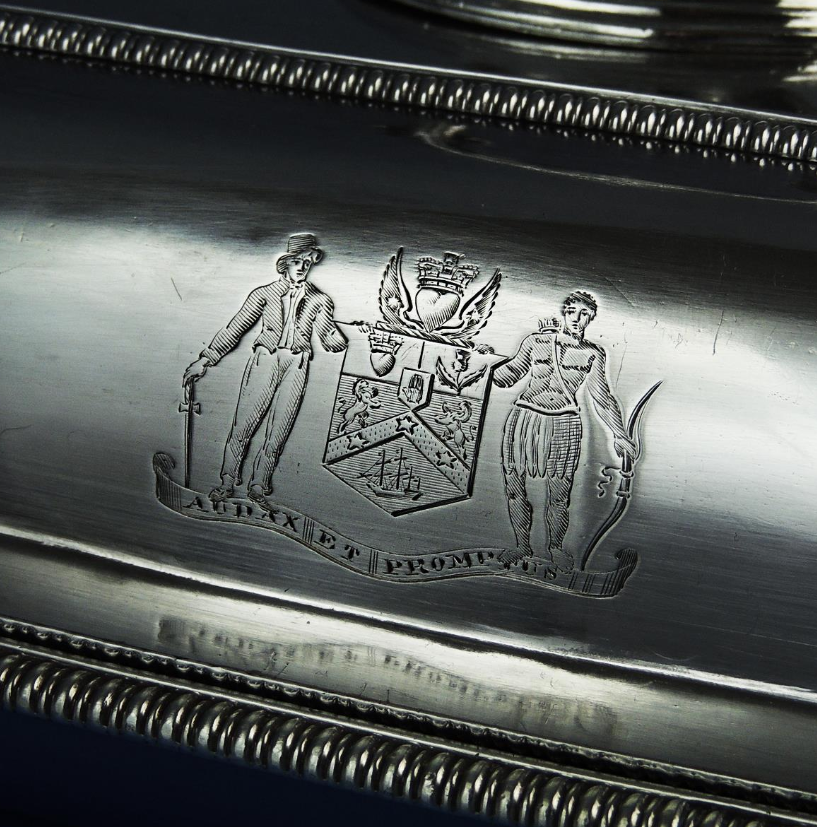William Douglas, born in 1745 was the son of a
Galloway farmer. started his working career as a pedlar, but after a
spell in 'American trade', probably trading with the 'Red Indians'. He
returned to Scotland a wealthy man. His Baronetcy was granted in 1796.
With his brothers,
James and
Samuel Douglas,
he built up a land holding, which, upon his death in 1809, was
distributed between his nieces and nephews.
William and Samuel set up cotton mills in Carlingwark, which was
subsequently developed as a 'planned' town, and re-named
Castle Douglas. They also
established cotton mills in Newton Stewart, which was re-named Newton
Douglas, though this reverted to its original name in 1826, when the mills
were sold.
William also set up a soap works, brewery, woollen mill and tannery in
Castle Douglas, and founded the Galloway Banking Company(1),
of which his nephew
William Douglas of Almorness was also a partner.
He built Gelston Castle in 1805.
In addition to James and Samuel, there was a 4th brother,
George.
A mausoleum was
erected in Gelston in which he and 24 members of his family and
descendants (presumably not his) are interred.
He died, unmarried, in 1809.
A George III entree dish was sold (2020) bearing these armorials:


Notes:
1. A Douglas had also established a bank, the
Douglas, Heron and Co.
Bank, which collapsed into bankruptcy on 1772. The Galloway Bank
closed following a bad debt.
2. Following his death there was a court case between his
niece, Elizabeth (Betsy), daughter of George, who had married Col James
Monroe, nephew of President James Monroe (and adopted son?) and Douglas
family members over the fair distribution of the wealth. See
Monroe Vs Douglas.
See also:
• Newton Stewart
• Family
tree (1)
•
Family tree (2)
|


